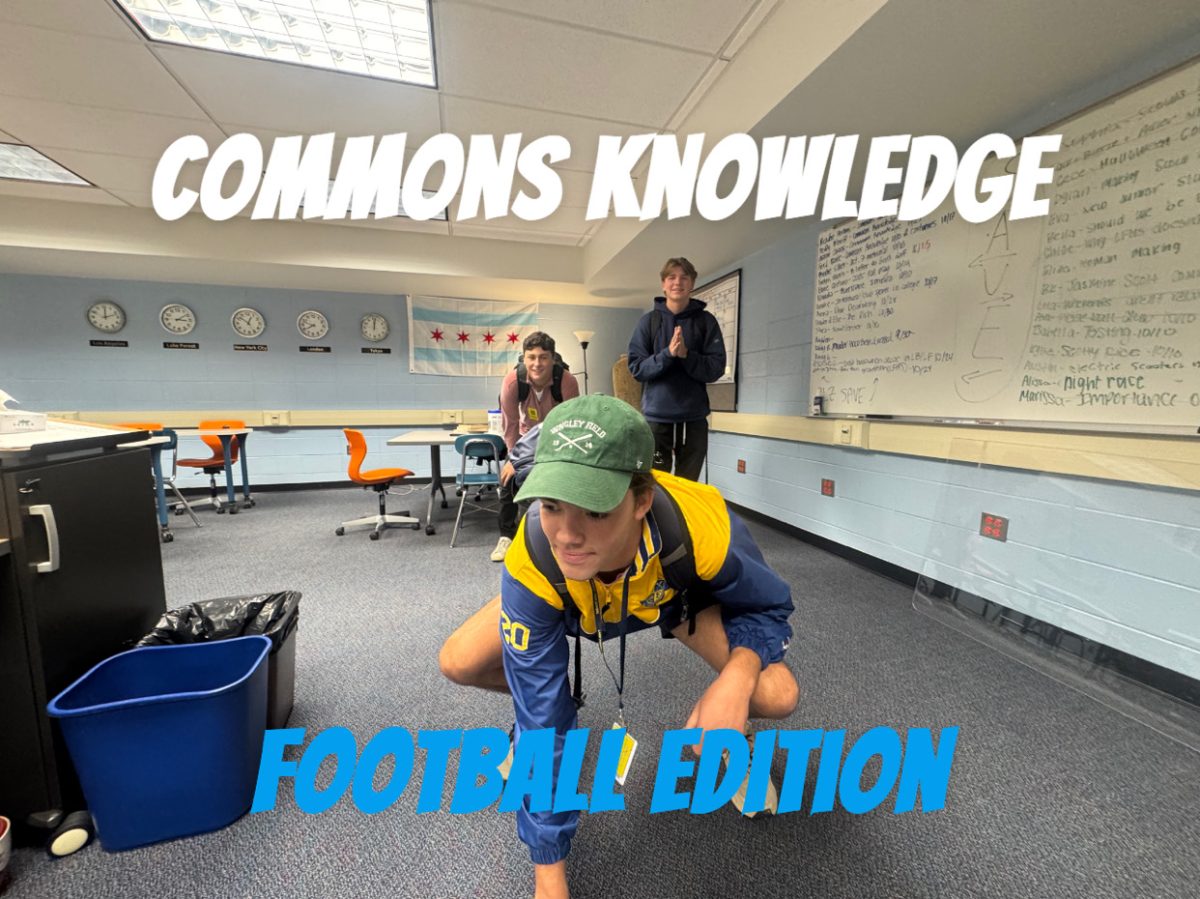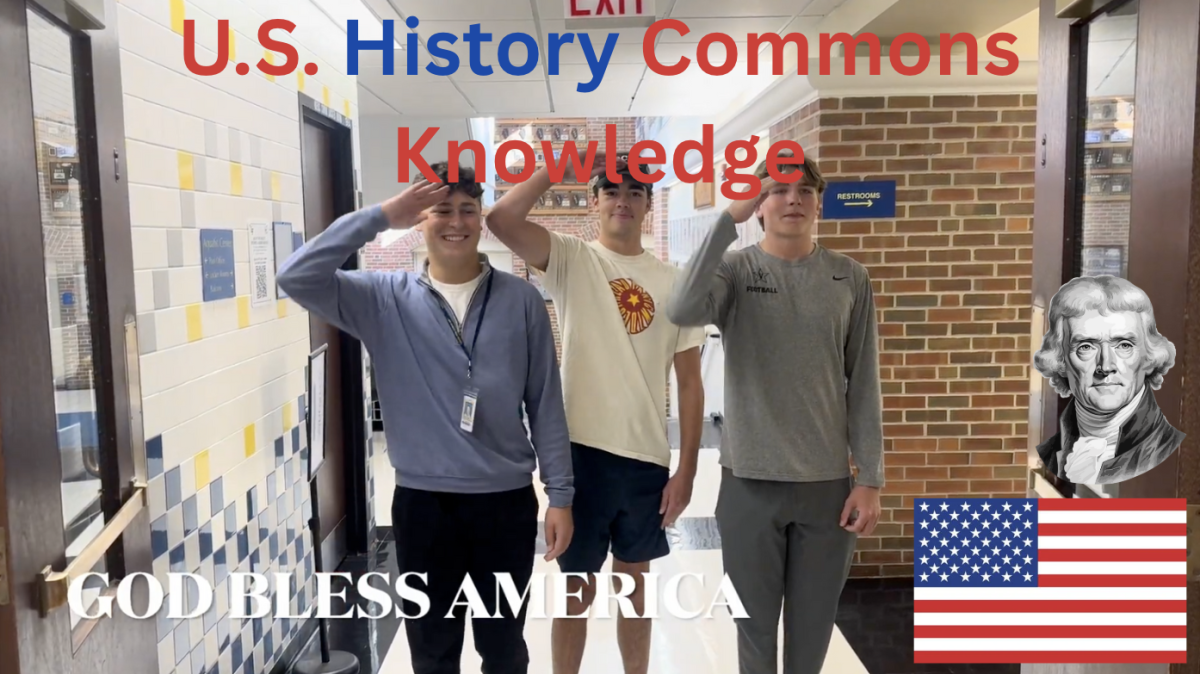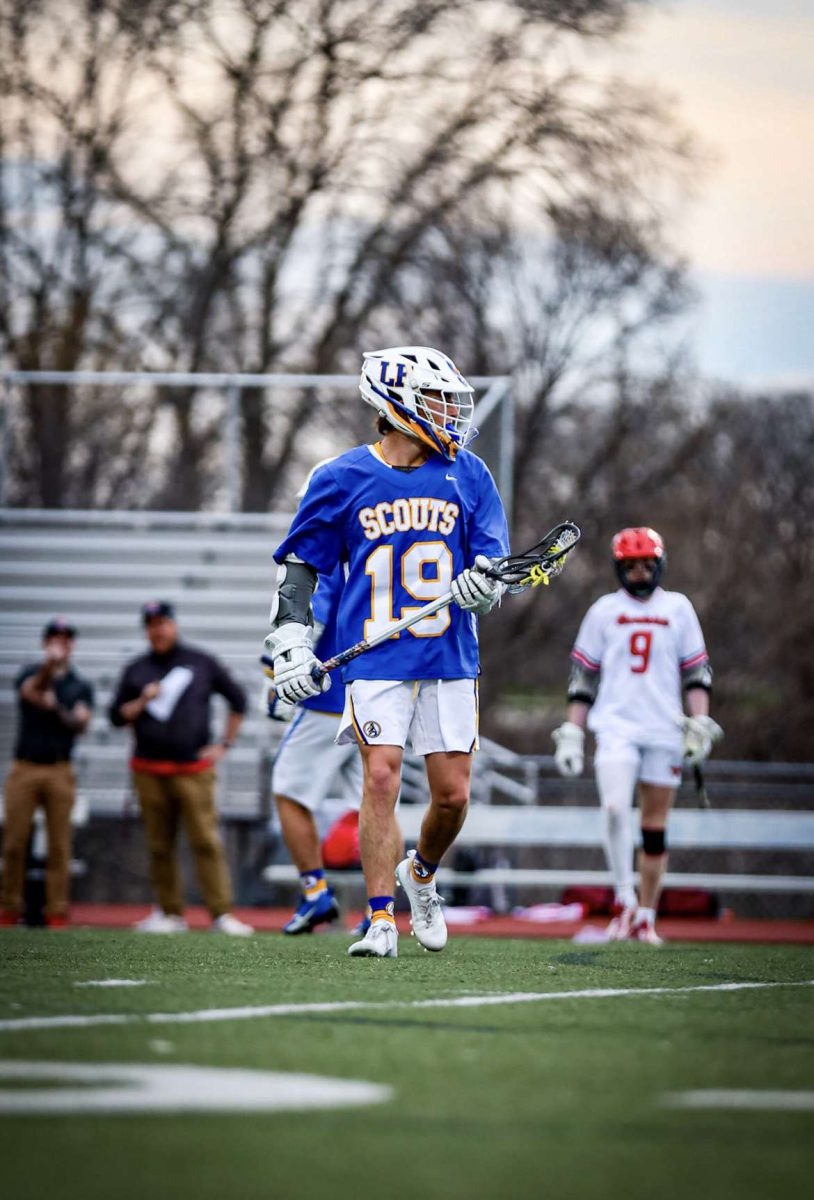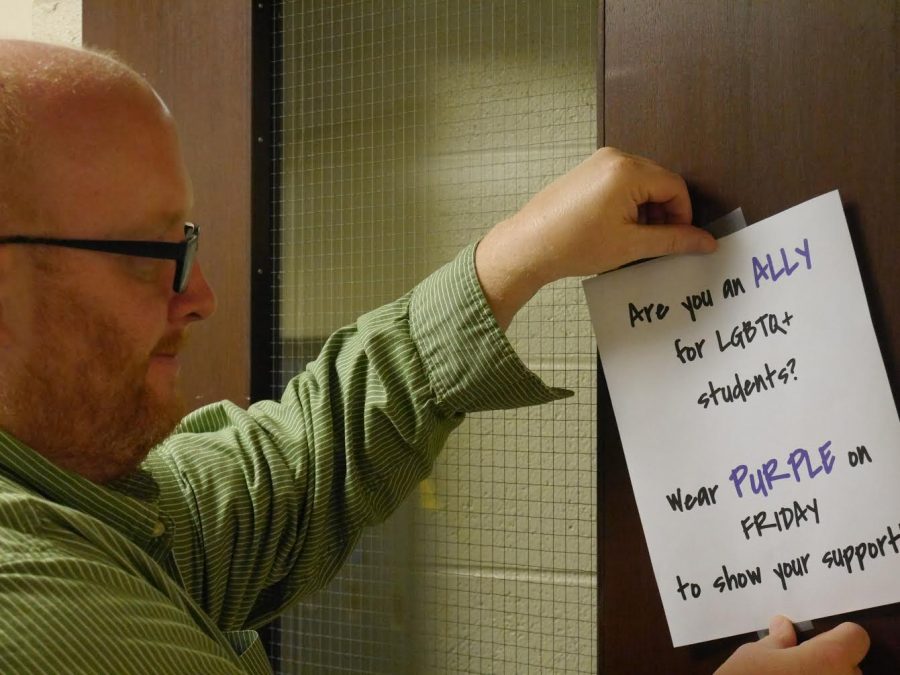The following is an excerpt from Mr. Peter Ferry’s novel, Travel Writing. Mr. Ferry was a former LFHS English Teacher who is now a professional writer and editor.
Author’s Note:
The events depicted in this story actually took place with a couple exceptions. One is that the girl in the car was not exotic and beautiful and she was not, of course, naked. Another is that she did not die. The last I saw of her she was being taken away in an ambulance, but that’s why this is fiction. I killed her because it was more fun and dramatic that way, and I wanted to confront the question, “what if you had a chance to save someone’s life and didn’t take it?” Also, the girl did not run into a telephone pole. She hit a tree, but the lawyers at my publishing house, Harcourt Houghton Mifflin, were afraid that the real girl might sue them because I said that she was drunk and couldn’t prove it. For some reason it was enough to make the tree a pole. Funny.
One thing more: the kids in the story were modeled on students in my classes. They were real. The one called Nick was modeled on Dave Eggers.
Chapter One: Telling Stories
Sometimes I try to show my students the power of the story by telling them one. I say, “Last night I was driving home from work and – now I’m just making this up off the top of my head – I noticed in my rearview mirror that there was a car swerving in and out of my lane. Anyway, I was in that stretch of Sheridan Road just south of Kenilworth that’s two lanes each way and no divider and no shoulder and no margin for error, in other words, so I slowed down to let the car pass, or would have slowed down to let it pass me if this had really happened, which it didn’t, and as it went by I had a look, a quick look, at the driver and I saw three things. First that it was a woman and that she was very exotic and quite beautiful. Second I noticed, or would have noticed if I weren’t making this up, that there was something wrong with her; her head was bobbing as if she were drunk or sick or fighting sleep. Now the third thing I noticed was that her shoulders were bare, and I had the strange sensation that more was bare, that her breasts were exposed or perhaps she was completely nude. Now, remember I’m just making this up. Anyway, I followed her for some time watching her weave and bounce off the curb wondering what I should do, wishing I had a cell phone, although unsure who I would or should call, when we came to a red light and I found myself drawing up beside her.”
By this point a girl whose hair is green today and who has been passing notes is listening to me, and a dog-faced boy who has been surreptitiously doing his Spanish homework has stopped and a kid whose head was down on his arm, call him Nick, has sat up. When I have eye contact with each member of the class, I stop. I say, “But of course none of this ever really happened, and I’ve told you that four times, and you know it didn’t happen, but look at you, you’re interested, you want to know the rest, you want to know if she was naked and what was wrong with her and what I did or didn’t do and all the rest even though I’m making it all up right in front of you, and that is why stories are so powerful.”
* * *
So, I’m a teacher, a high school teacher. In our society that gives me very little authority. About the highest compliment most people can pay a teacher is to ask why he or she became a teacher. That’s supposed to be flattering, as in “you could have really done something important with your life.” To boost my stock, I guess, I also do some writing, especially travel pieces for newspapers, magazines, and travel guides.
I teach English at the public high school in the wealthy Chicago suburb of Lake Forest, which in an odd way gives me even less authority than if I taught in a blue collar neighborhood or a farm town where I would at least have more education than the parents of most of my students. In Lake Forest teachers are sometimes treated like the lawn service. “Honey, see if you have time to call the caterers about Saturday and let’s get someone out here to fix that toilet and someone to teach Charlie the difference between active and passive voice.” Mind plumbers. But that’s okay. It’s a lovely place to teach, and we’re paid a living wage. Besides, I like working with people who bring their own lunches and drive little cars. Most teachers are pretty good people.
Before teaching I worked for a publishing house. I sat in a windowless cubicle writing textbooks for which someone else made a lot of money; it isn’t glamorous, but you can get rich if you can get every eighth grader in the state of Texas to read or at least buy your thirty dollar book. And somehow people think that it is glamorous. I would go to parties and say I was an editor and people, especially women – and that was important to me then – would say “oh really” and raise their eyebrows and look at me a little more carefully. I remember the first party I went to after I became a teacher, someone asked me what I did for a living and I said, “Well, I teach high school.” He looked over my shoulder, nodded his head, said, “I went to high school,” and walked away.
Once I repeated that anecdote around a big table full of Mexican food in the garden at a place called La Choza in Chicago, and Becky Mueller, another teacher at the school, said that I was a “storyteller.” I liked that. I was looking for something to be other than “just” a teacher, and “storyteller” felt about right. I am a teacher and a storyteller in that order. I have made my living and my real contribution to my community as a teacher, and I have been very lucky to have found that calling, but all through the years I have entertained myself and occasionally other people by writing.
* * *
But it really did happen, of course, the girl in the car, or could have or might as well have happened. It happened just as surely as Ernest Hemingway went down to Pamplona with a bunch of people one of whom was not Lady Brett Ashley but was Lady Duff Twysden, and she really did sleep with every one under the sun so that years later when she died of tuberculosis at the age of forty-five in Taxco, Mexico, all of her pallbearers were former lovers, and they really did drop her casket coming down the steps of the cathedral, and those people all drank way too much and slept with each other or tried to and couldn’t so that one morning drinking coffee in the Café Iruna or six months later in Paris Hemingway said “what if” and “suppose….” It happened just as surely as Stephen Crane was shipwrecked off the coast of Florida in 1896 and spent four days in a life boat and then wrote one of the best American short stories ever about it. But it hadn’t happened the night before, and, of course, the woman wasn’t naked; I just put that in for purposes of teenage titillation. No, it was some time ago now on a Friday evening in December a week or two before winter break. I had stayed around to clear my desk, so it was after six when I was driving home tired and happy for the weekend. And she really was swerving crazily and bouncing off curbs. I did get behind her, and as she went by I had just a glimpse of her and saw that she was quite beautiful, although I must tell you that I have a thing about falling in love with women I see through glass. Once I had a fantasy that lasted some months about a drive-in bank teller with a sexy voice. I finally had to see who she was, so I went into the bank. From a distance I spotted her at the drive-in window with her back to me, and I was thrilled, but when she turned around I saw that she was horse faced and middle-aged. I went back to my car disappointed and wondering what I had fallen in love with and if I was still in love with it. So anyway, I followed Lisa Kim, for that was her name, down Sheridan Road on this dark, winter evening, which wasn’t very hard because her right rear tail light cover was broken and the light shown white. I followed her, becoming increasingly fascinated and concerned at the same time. How had she gotten so drunk so early? Had she been to an office party? And what could I possibly do about this situation? I looked for a cop, or rather hoped one would see her because by the time I’d have told the story, she’d have been gone, lost in the traffic. Could I signal to her? Should I pull up beside her and have another look? But there was no doubt she was in trouble and besides, she might swerve into my lane and drive me into oncoming traffic. And why was I so concerned? Would I have been if she had been a woman on a cell phone in an SUV? A black guy with his cap on sideways? An old man? Then there was the stoplight when I did pull up beside her, the one at Sheridan Road and Lake Street, the one just before the S curve that skirts Baha i Temple. And there she was, head bobbing, car hazy with smoke, music so loud I could hear the words although both our windows were up. It was then that I could have done something. Over beers a few days later, John Hedblom, who is an attorney, would say, “You’d have been in big trouble legally.”
“But what about morally?”
“I don’t know about that, but legally you’d have been in big trouble.”
Moot point. I didn’t do anything. Before I could decide what to do or if to do and just after she had looked at me and we had for one tiny, shadowy instant made eye contact and I had seen on her face a look that may have said “watch this” but may have said “do something,” the light changed and she pulled away. Fast. She fishtailed and drove right through the S curve, missed it completely, hit the curb with her front tires hard, which launched her into the air, and hit a tree the size of a telephone pole about four feet off the ground. I got there about the same time as a man in a camel hair coat and a younger woman who might have been his wife. They had been coming north. We looked through the driver’s window. Lisa Kim was lying face down across the passenger seat and onto the floor. There was some blood, but not too much. I felt the door handle, pulled it carefully, tentatively, pulled the door open (it creaked but came), reached across and turned the engine off although my hand was shaking so badly that I could barely do it. Already there were sirens.
The young policeman said I shouldn’t worry about it, that I couldn’t have prevented it.
“But what if I’d blocked her at the light, taken her key?”
“Then I’d probably be here arresting you.”
“But she was driving drunk. I mean, look what happened.”
“Yeah, I know, but there was nothing you could do, really.”
“That’s a little hard to accept.” But I accepted it, at least in part, and began to feel a little better. And we all felt better when someone (the man in the camel hair coat?) said he thought he saw her move on the gurney, and someone else (the younger woman who might have been his wife?) was sure she groaned.
“She’ll be all right.
“Kids are tough. Kids are resilient.”
That’s the great thing about being American; we’re so relentlessly cheerful and optimistic. Our glass is always half full. Daisy’s green light is always out there giving us hope. I just don’t believe that a group of Europeans would have reached the same conclusion that we did before we got back in our cars and went on about our lives.
I read somewhere that 60% of Americans still believe in Heaven and Hell. Of that 60%, 97% think that they personally will go to heaven. Only 3% of that 60% or 1.8% of all Americans think they are going to hell. Wouldn’t that distress Cotton Mather? Wouldn’t it make Norman Vincent Peale proud? I mean, talk about corn fed, Rocky Balboa, Little-Engine-That-Could positive thinking. Even the most basic understanding of human nature and the law of averages would suggest a miscalculation.
Lisa Kim was dead. Dead on Arrival. DOA.













